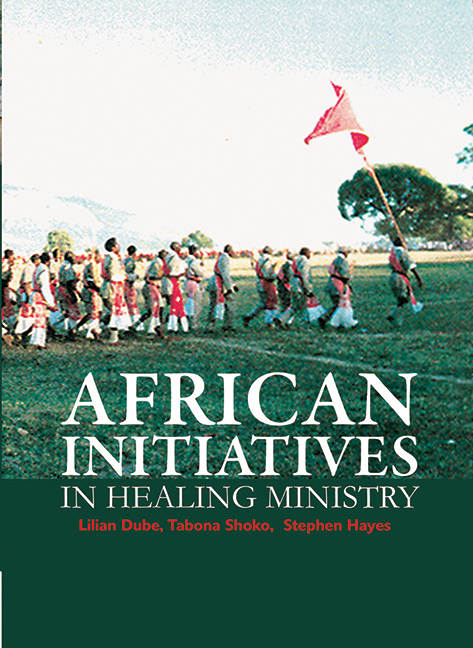Agnes Majecha and the Zvikomborero Apostolic Faith Church
Published online by Cambridge University Press: 28 February 2020
Summary
Agnes Majecha is the overall leader of Zvikomborero Apostolic Faith Church (ZAFC) and the archbishop's wife. She is literally in charge of the healing centre which is also her home in Yellow City Township, Marondera. Her husband, Kenny Majecha, lives and works in another town, so in essence his leadership as the archbishop is nominal. Mrs Majecha, under the episcopate of her husband, manifests unique powers that have attracted many people from all circles of Zimbabwe, even the most reputable dignitaries. Her house is used as the centre for miraculous healings, exorcisms and spiritual counselling services.
On reaching the home, one observes groups of people waiting outside the premises. Some of them look weary and tired, some sit together silently, while others speak excitedly of past activities of healing, exorcism and deliverance rituals they have witnessed. One notices that the people have diverse cultures and different languages, having come from as far as Botswana and South Africa. At first sight, Mrs Majecha looks like any other woman. She is very free with nearly everyone who greets her. She looks excited and yet also calm and experienced in commanding all situations. There is no doubt that she is in charge.
Agnes Majecha draws inspiration from Christianity and from important features of Shona traditional religious experience. Her work is characterised by a variety of techniques of harmonising traditional aspects of African religion with Christian practices. She blends traditional religion with Christianity in a creative way. Herein lies her initiative in African Christian church development in Zimbabwe. Her ability to make a positive synthesis of spiritual values from Christianity and traditional religion is admirable. Oosthuizen (1968:xi) initially regarded this synthesis as a means of building ‘easy bridges back to nativism’. Sundkler (1948:297) also spoke of such a synthesis as ‘a bridge over which Africans are brought back to heathenism’. Later, however, both Sundkler and Oosthuizen revised their views and acknowledged the African Independent Churches’ efforts as a positive synthesis.
Drawing from Christianity the language of spirituality, the inspiration and even the model of prophetism on one hand, and from traditional religion specific ritualistic patterns on the other, she produces a vibrant form of African Christianity.
- Type
- Chapter
- Information
- African Initiatives in Healing Ministry , pp. 74 - 98Publisher: University of South AfricaPrint publication year: 2011



